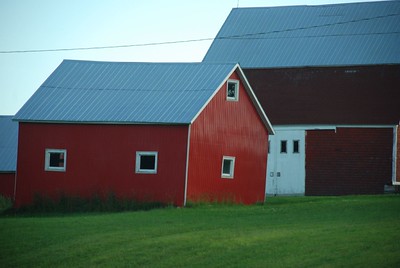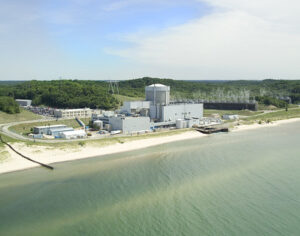Research from the University of Wisconsin-Madison suggests that new strategies may be needed to preserve family farms moving forward. The number of farms in Wisconsin dropped by nearly 25% between 2002 and 2022. During that period, Wisconsin lost more than 60% of its dairy farms – an industry that Wisconsin is known for.
The report cites the age of farmers in the state as well as the cost of entry as reasons for the sharp drop in the number of family-run farming operations there. Professor Steven Deller, who authored the report, suggests that one strategy to prevent further declines in the number of active family farms is to pair off-farm income with farming income.
Additionally, Professor Deller points out that the size of the farming operation has a significant impact on the farm’s survival. Operations that grossed more than $1M annually needed an income boost of about 15% from off-farm income to remain solvent. In contrast, small family farms with annual sales below $100,000 needed an average off-farm income boost of 102% to cover farming operations.
The data suggest that the smaller the operation, the harder it is for farmers to remain in business due to fixed costs that operations alone will not cover. In that case, the family’s non-farm income usually sustains the farm. Losing a job can destabilize both the household and the farm operation. According to the report, this applies to about 75% of the state’s farms. Only about 3% of family farms in Wisconsin have annual sales that top $1M.
Family farms are more than just the land they sit on
While the report focuses on Wisconsin’s family farms, this scenario is playing out on family farms around the nation. If the preservation of farmland in Washtenaw County is important enough to pass millages to buy the development rights for this land, then we also need strategies to preserve small farming operations sustainably for future generations.
The report suggests that land acquisition costs are only one facet of the economic challenges that small farm operators face. The day-to-day costs associated with farming, including seeds, electricity, animal feed, harvesting, and storing or selling farm produce, can be overwhelming for small farmers. Finding appropriate seasonal and non-seasonal income to pair with farming is essential to preserving small farming operations.
With an agri-business program, WCC could help develop viable income opportunities for people who want to operate small farms. It’s not enough to promote farmland preservation without also taking measures to preserve farming operations.
And if preserving the county’s farmland does not also include preserving its farming operations, then let’s stop being coy about why Ann Arbor and Washtenaw County are buying up the development rights to the county’s farmland. Let’s just admit that the reason we’re funding “farmland preservation” is really just to further inflate the already exorbitant home prices here.
Photo Credit: Nancy Waldman , via Flickr
















